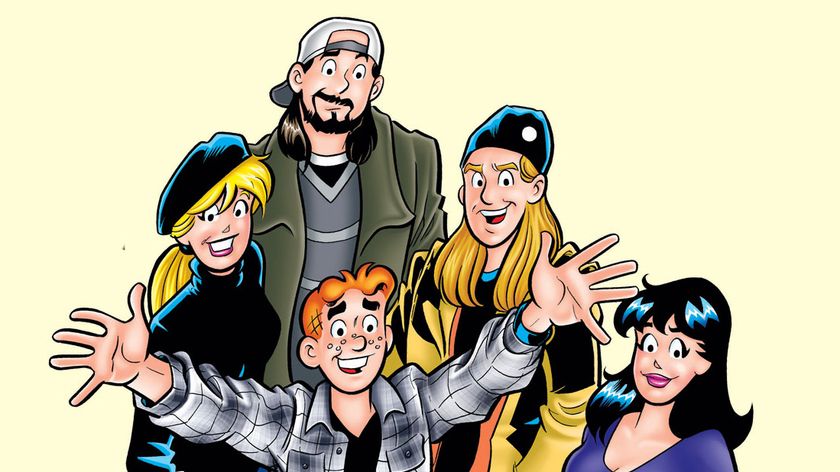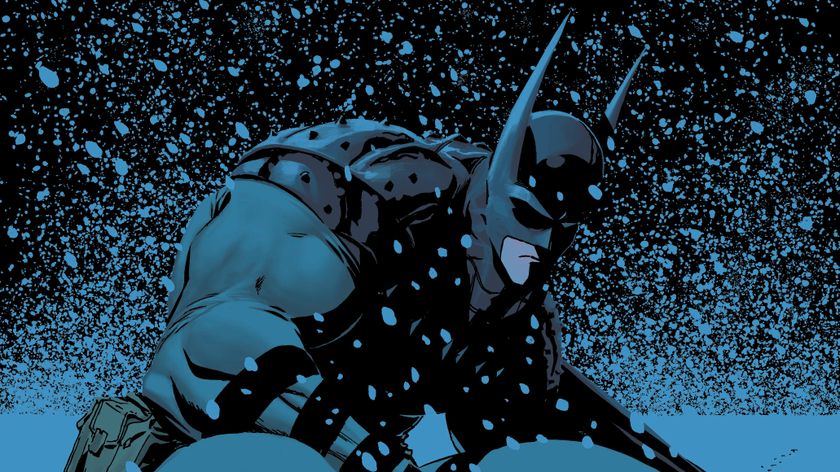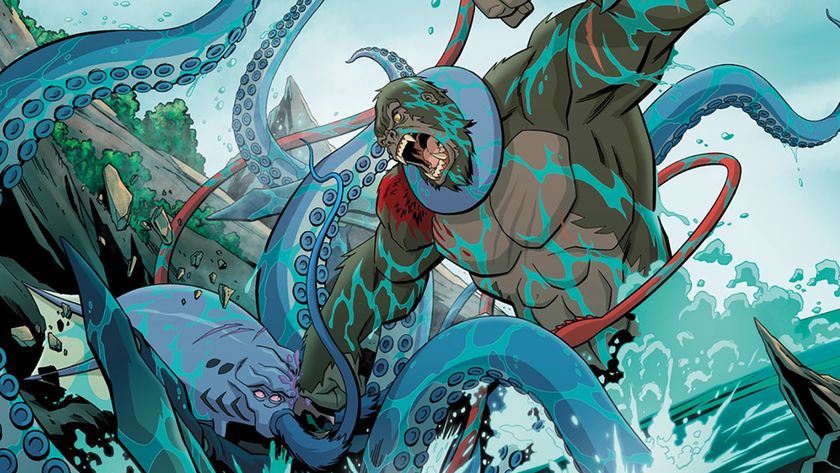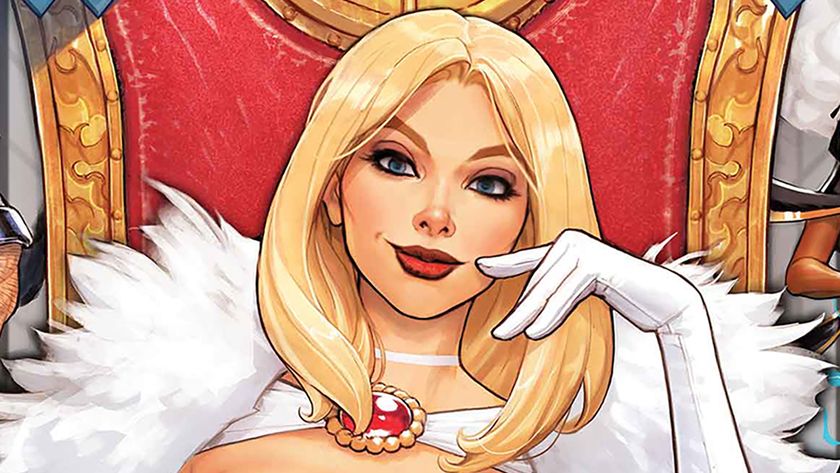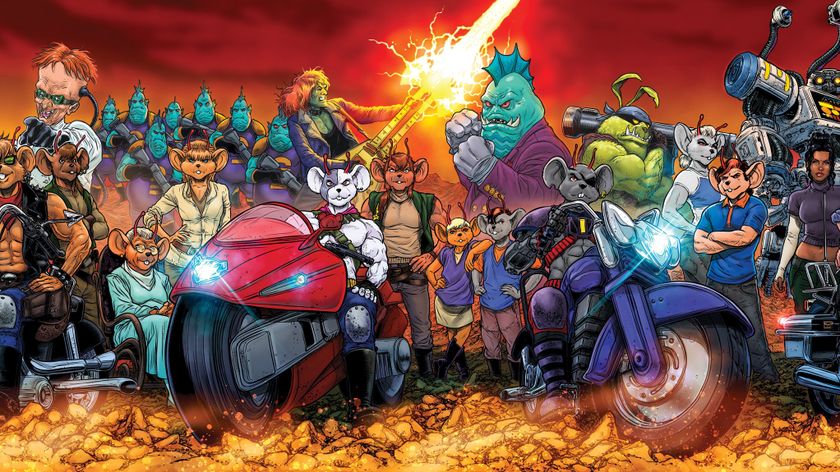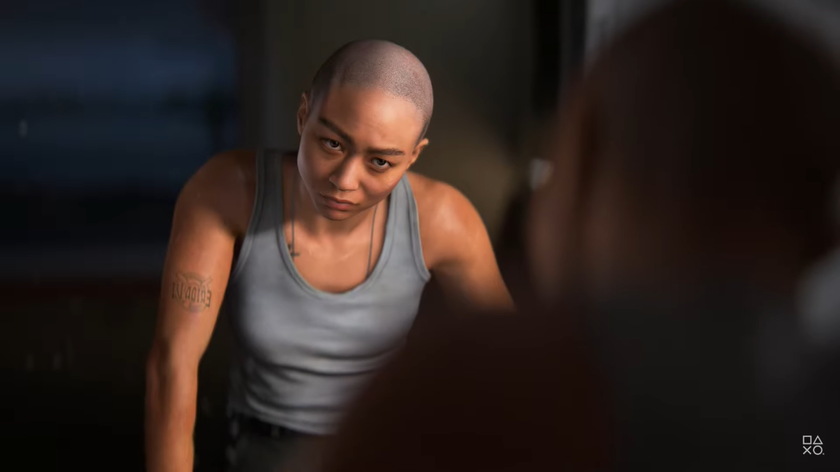
Scott Snyder has been a working comic book writer for a decade now, and in that short time span already accelerated to become one of DC's top writers and the definitive modern Batman writer with his runs on Detective Comics, Batman, and All-Star Batman. But behind that success was a person who struggled with mental illness for most of his adult life.
Over the years, Snyder has opened intermittently in interviews, on social media, and at conventions about dealing with depression and anxiety and how he copes with it in his everyday life.
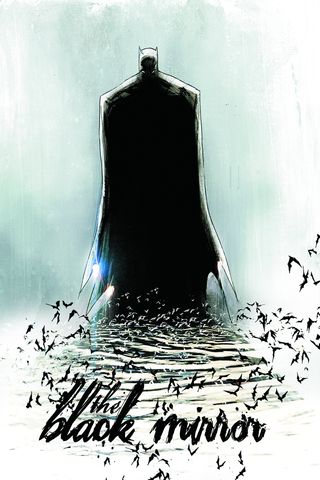
"I started dealing with depression when I was about 18 or 19. I had a couple of really bad bouts with it at the beginning of college," Snyder tells Newsarama. "I really just kind of fell apart and I couldn't understand what was happening. I had never gone through a crippling amount of it before and I felt overwhelmed by all the circumstances of everything.
"You know, being away from home, being away from the girlfriend. Everything sort of started to add up. I didn't treat myself well and I didn't take care of myself. I started to feel more and more anxious and then I fell into a really bad place."
He mentioned how over the years he started to become a lot more familiar with how depression works, as well as anxiety, and that he started seeing a therapist regularly in addition to taking medication.
"I've had my ups and downs with it over the years, but I feel like I've learned to manage myself and understand myself and how this all works as best I can."
As he grapples with all of this, he also grapples with the demonization of mental illness that sometimes happens with Batman's rogues gallery.
Comic deals, prizes and latest news
Get the best comic news, insights, opinions, analysis and more!
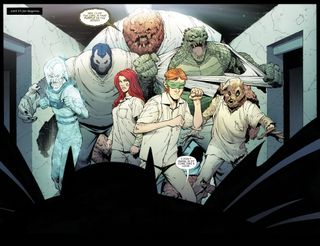
"You know with Arkham there's always been a talk of changing it to something else so it's not Arkham Asylum so it becomes something more of the punitive aspect of it. Especially since these colorful, other-worldly villains have no correlation to mental illness in any realistic way," he said.
To Snyder, the villains themselves aren't extensions of any particular mental illness, but are a reflection of his greatest fears - Batman's, and Snyder's himself.
"The Joker, in particular, talks about things when he's taunting Batman about his life's work with his family, with his mission, all of it being reduced to nothing. He's just telling him that he's worthless. These are things that really repeat in my head in my own life when I'm not feeling well.
"When Two-Face is threatening Batman, he's not really going on about being bipolar or split personality or anything like that. He's really saying deep down 'people are ugly and I know they are' and so on," Snyder continued. "That's something when I feel anxious or overwhelmed by the news sometimes or a really terrible story, you start to wonder about human darkness and then you start to worry about yourself and other people.
"I look at the villains as ways of exploring my own deepest fears and anxieties. It does allow me though to explore things I feel acutely when I'm not well."
Talking about the actual purpose of Arkham, Snyder mentioned the likes of the Penguin not needing to go there, though he was always featured as an inmate for the most part, and elaborated on how Arkham should work, and what he loves about the creation.
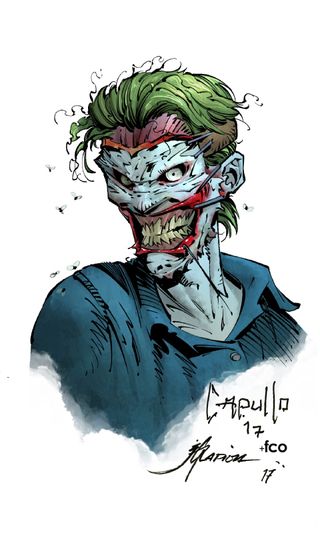
"Arkham is just a colorful gothic prison for your favorite villains," said Snyder. "To stigmatize it by saying it's an asylum is an outdated view of mental illness, but I do think in some ways that I wish that wasn't the case. I wish it wasn't an asylum but at the same time, I really love Arkham Asylum. I love the name. I love the history. It's so deeply ingrained into my heart and my psyche so whenever I hear 'Arkham Asylum,' I love it."
"I do believe as sensitive an issue as it is as somebody who is relatively open about my own relationship to mental illness," he added, "at the same time, I do feel like people that understand the lexicon of Batman well enough at this point to know that this is not saying that people with mental illness are villains. The characters were never meant to be that way."
He went on to talk about how you can make the argument that some of the characters are suffering and troubled, but under no circumstances are extensions of any particular mental illness.
"You could say Zsasz is a sociopath or psychopath and talk about those things, but he could easily just be in a prison."
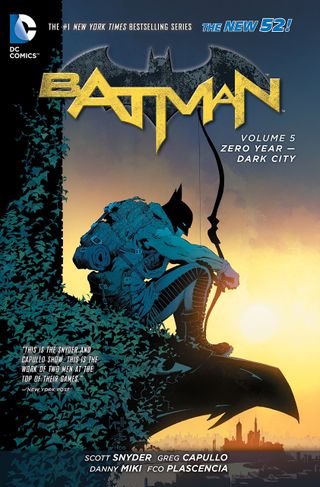
Talking about the procedures of self-care, Snyder explained what works for him, and though it might sound hokey, the Eisner-winning writer told us that it was getting back into exercising that helped him.
"Exercise is really important to me and I try to run almost every day. In a small way it makes me feel productive even if I'm feeling down about my work and secondarily, I just feel better after exercise. The endorphins or whatever it is... it works."
In addition to working out, Snyder commented that he spends a lot of time with his family and makes sure to shut things off at night that have to do with his worries and makes sure to get enough sleep. He also pened up about his problems with drinking in the past as a coping mechanism. "I've fallen into patterns where I'm self-medicating and if I've been really depressed, I usually start drinking too much. I've been in a bad way with that at times."
"So just being careful in the type of behaviors that you think you're helping yourself with, but aren't helping yourself at all," he said. "Staying up late, looking up the things that bother you, repetitive pattern behavior, and believe me, I've been through it all."
Snyder then told a story about working on Batman's 'Year Zero' arc a couple of years ago, when he was going through a rough time and his long-time artistic partner Greg Capullo noticed something was amiss.
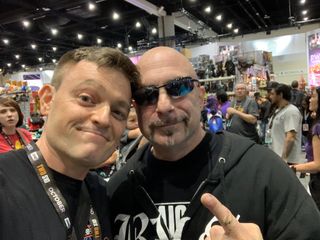
"Capullo helped me through when I was not acting like myself. I couldn't make decisions, I was constantly doubting myself and was bewildered by these common tools I use and how they almost became like these alien objects. What is a metaphor? What is character development? How do I do it? I just didn't remember. It was terrifying."
Snyder then explained what helped him in this trying time.
"Just write through it. For me, going through the behavior that you're most nervous about. When it focuses on work like, I'm a terrible writer, I'm worthless, and you know, that voice goes on just to 'sit there and write anyway.' Even if what you write is awful that day, just to sit there and do it is an achievement unto itself. Through these villains and through Batman it makes the journey of writing more exploratory. I like to look at the stuff that scares me the most that way."
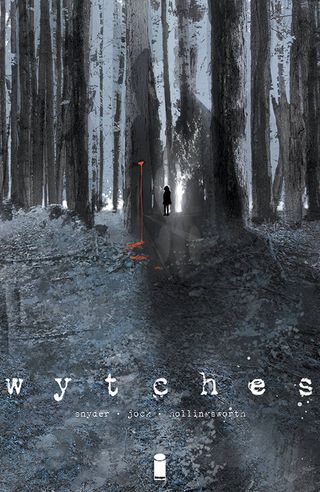
His concerns weren't just limited to his work on Batman or at DC, as it's something Snyder brought up relating to his recent creator-owned title Wytches with Jock at Image. Snyder talked about how it also touched on his fears, and very personal ones, including his genuine fears as a parent.
"For me, each book has a different aspect of the things I worry about when I'm most anxious. When we got pregnant, I had a difficult time because I was terrified I was going to be a horrible father. I struggled at first when I got into that role, but now I love it. It's the best job in the world, but you can go through moments of resentment and Wytches lets me explore those things darkly in a way that makes me both vulnerable and embarrassed, but ultimately very proud of myself and the team to put what is uncomfortable for us on paper."
Lastly, on a positive note, Snyder offered words for those going through what he's been through.
"My biggest thing is to go get help. If you can get somebody professionally, do it, if not, talk to your friends and family. Learn about what this really is. There's nothing 'wrong' with you, it's the fact that you're sick and you shouldn't suffer alone and feel like you're worthless. Find those that can help you and talk with you and help you, even from a medical standpoint. Just understand what's going on and don't blame yourself. You can be strong."
If you need more assistance with your depression, each state has its own depression hotline. For more information, consider MentalHelp.net's depression hotline.
Lan Pitts likes watching, talking, and writing comics about wrestling. He has mapped every great taco spot in the DC and Baltimore areas. He lives with his partner and their menagerie of pets who are utterly perfect in every way.

